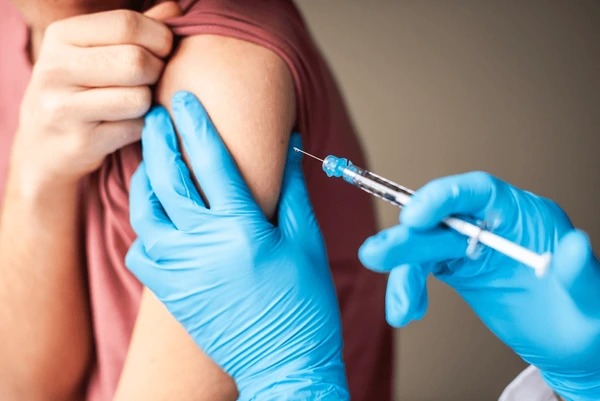RALEIGH, N.C. — As students across North Carolina prepare for the new school year, state health officials are emphasizing the critical role vaccinations play in keeping children healthy and in classrooms.
The North Carolina Department of Health and Human Services (NCDHHS) issued a reminder to families this month that up-to-date vaccinations are essential for both individual student health and overall back-to-school success.
Health Secretary Calls for Collaborative Approach
“Health care providers and families have the same goal: A healthy future for all our children,” said NC Health and Human Services Secretary Dev Sangvai. “Vaccines are an essential piece of child, teen and family well-being.”
Sangvai encouraged parents to use any healthcare visit as an opportunity to ensure their children’s vaccinations are current, including sports physicals, camp checkups, school health assessments, routine visits, and even sick visits.
Alarming Rise in Preventable Diseases
The vaccination push comes as North Carolina faces concerning increases in vaccine-preventable diseases. State health officials report that 2025 has already seen more measles cases nationwide than any year in over three decades. Even more troubling for North Carolina specifically, the state has recorded more whooping cough cases this year than at any point in the past 70 years.
Other vaccine-preventable diseases including meningitis continue to appear across the state, underscoring the ongoing threat these illnesses pose to unprotected children.
Public Health Director Emphasizes Community Protection
Dr. Kelly Kimple, Director of the NCDHHS Division of Public Health, stressed that vaccination benefits extend beyond individual protection.
“Vaccines remain one of the most effective means available to prevent serious illness, hospitalization and death,” Kimple said. “They help to protect the health of children, their families and the entire community from the spread of infectious diseases.”
Governor Declares August Immunization Awareness Month
Governor Josh Stein has officially proclaimed August as Immunization Awareness Month in North Carolina, highlighting the state’s commitment to vaccination education and access.
Coinciding with the proclamation, NCDHHS launched a bilingual Childhood Vaccines Toolkit designed to facilitate conversations between healthcare providers and families about childhood immunizations.
Medical Experts Recommend Back-to-School Health Discussions
The North Carolina Pediatric Society is also supporting the vaccination initiative. Dr. Theresa McCarthy Flynn, the organization’s president, explained the science behind immunizations.
“Immunizations help protect your child by training their immune system to recognize and resist diseases,” said Flynn, who holds credentials as an MD, MPH, and FAAP. “The back-to-school checkup is a great time to talk with your pediatrician or other primary care provider about vaccines and any other concerns you might have about your child’s health.”
Free Vaccines Available for Uninsured Children
To address potential financial barriers, the state highlighted the Vaccines for Children (VFC) program, which provides free vaccinations to eligible children through age 18 who are uninsured. This program ensures that economic circumstances don’t prevent children from receiving necessary immunizations.
Seasonal Vaccines Also Recommended
Beyond required school vaccinations, health officials encourage parents to discuss seasonal vaccines during healthcare visits. The flu vaccine is recommended for children six months and older to provide comprehensive protection throughout the school year.
Resources Available for Parents
NCDHHS has made several resources available to help parents navigate vaccination requirements and recommendations:
- Vaccine requirements for K-12 school-age children
- Recommended childhood vaccine information
- NCDHHS kindergarten immunization dashboard
- Vaccine safety information
- Details on vaccine-preventable diseases
- Interactive VFC provider map for locating free vaccination services
Parents are encouraged to consult with their child’s healthcare provider about both required and recommended vaccinations to ensure comprehensive protection as the school year begins.

